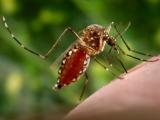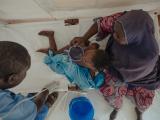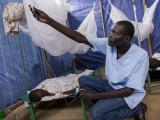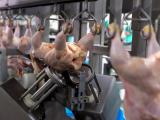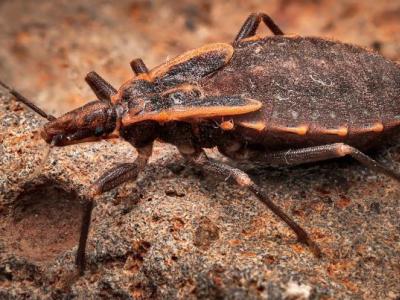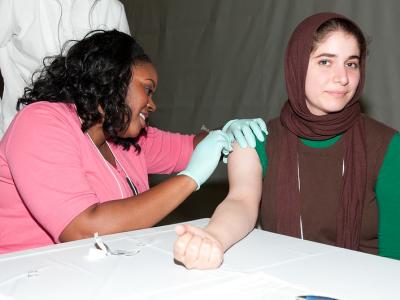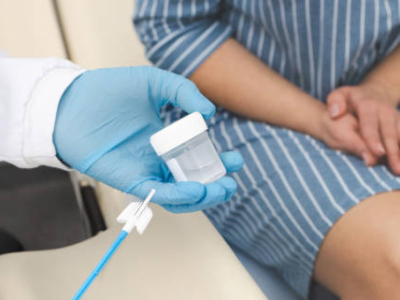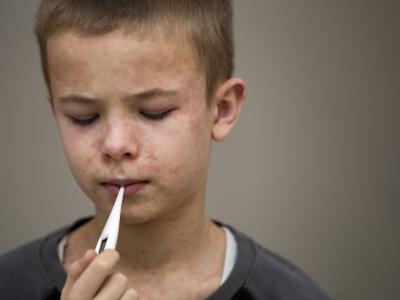Mar 3, 2011
Journal calls for elimination of smallpox virus stocks
The journal Vaccine has joined the voices of those calling for the destruction of the world's remaining known stocks of smallpox (variola) virus, saying the pathogen could be recreated if necessary for future research. The argument is made in an early-release editorial by J. Michael Lane of Emory University School of Medicine and Gregory A. Poland, the journal's editor-in-chief and a vaccine researcher at the Mayo Clinic in Rochester, Minn. "The simple fact is that smallpox can now be reconstituted from published sequences if needed from a scientific point of view," they write. "Why risk the opprobrium of the rest of the world by keeping virus strains that have little utility, result in unnecessary risk and expense, and which may be seen by others as symbolic of a bioweapon arsenal?" Lane and Poland contend that the risk of a bioterrorist attack involving smallpox is probably "infinitesimal" and that effective vaccines and probably effective drugs are available. The World Health Assembly is expected to consider the fate of the smallpox virus stocks when it meets in May. Smallpox was eradicated in the 1970s, but the United States and Russia have kept supplies of the virus for research on medical countermeasures, out of concern that governments or terrorists may possess hidden caches of the virus.
Mar 2 Vaccine editorial
Jan 11 CIDRAP News story on fate of variola stocks
Auditor says FSIS should expand sampling for E coli in beef trim
The US Department of Agriculture's (USDA's) inspector general, Phyllis K. Fong, told Congress yesterday that the USDA needs to take more samples when testing beef trim for pathogenic Escherichia coli. The agency's Food Safety and Inspection Service (FSIS) currently takes 60 samples from large lots of beef trim for testing, Fong told the House Appropriations subcommittee that covers agriculture and related areas. "Although 60 samples may be adequate to detect widespread contamination, more are needed when E coli is less prevalent," she said in written testimony. "FSIS' current sampling methodology results in detection of E coli less than half the time when it is present in 1 percent of a beef trim lot." She said she has recommended that the FSIS redesign its sampling method to allow for varying levels of contamination, adding, "FSIS has generally agreed with our findings and recommendations."
Mar 2 testimony by Phyllis Fong
Study shows single genetic change increases H1N1 transmissibility
Researchers from Harvard and the US Centers for Disease Control and Prevention created a pandemic 2009 H1N1 virus mutation that increased its transmissibility, according to a study published by PLoS One. Using reverse genetics, they created a single base-pair change in a receptor-binding site (the part of the virus that attaches to human cells) of the hemagglutinin (HA) protein on the virus's surface. They found that the mutation increased airborne transmission in ferrets and that "the increased human receptor-affinity is in the same range as that of the HA from highly transmissible seasonal and 1918 pandemic H1N1 viruses," they wrote. They conclude, "These findings are significant in the context of monitoring the evolution of the currently circulating 2009 H1N1 viruses."
Mar 2 PLoS One study
Survey: Health workers should have priority for protection in flu pandemic
In a poll of a university population on how to allocate scarce medical resources in an influenza pandemic, 89% of respondents said healthcare workers should have high priority, and 85% said the same for emergency workers, according to a study published early online by Vaccine. The online survey targeted all staff and students at the University of Alberta in Edmonton in 2006; the response rate from the 40,086 recipients was 13%. The poll defined scarce resources as vaccines, antivirals, and critical care. About 60% said essential workers should have high priority, but only 12.7% said the same for politicians. Respondents also were asked to choose one of six "priority access plans," such as "save the most lives," "save those most likely to die if not treated," "save children first," and "first come, first served." "Save the most lives, irrespective of differences" was the most popular choice, picked by 39.9% of respondents. The authors conclude that current policies for allocating resources in a pandemic may not reflect the public's views and that further efforts are needed to assess public attitudes.
Mar 2 Vaccine report
Miami area confirms 2nd locally acquired dengue case
Miami-Dade County, Fla., has confirmed its second case of locally acquired dengue fever, county health officials announced yesterday. The person, who was not identified and for whom few details are available, experienced symptoms consistent with dengue, and the diagnosis was confirmed by lab testing. The patient has fully recovered, according to a Miami-Dade County Health Department (MDCHD) press release. The first locally acquired case in the county was confirmed in November 2010. Dengue is a mosquito-borne disease that typically causes fever; severe headache and pain behind the eyes; muscle, joint, and bone pain; rash; loss of appetite; nausea; and vomiting. The MDCHD advised residents to take precautions to avoid mosquito bites and to eliminate diminish mosquito breeding sites.
Mar 2 MDCHD news release

